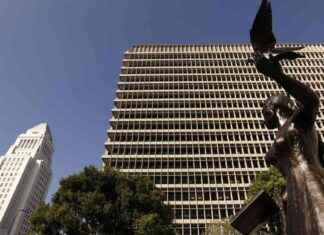The country, faced with great economic difficulties, aggravated by the Covid epidemic and then the war in Ukraine, has also been plunged into a deep political crisis since the president seized all the powers a year ago, arguing of the country’s ungovernability.
Despite an already scorching sun, more people than expected waited in several polling stations in central Tunis, according to AFP journalists.
According to the Isie electoral authority, more than 6% of the 9.3 million voters had already voted at 8:30 GMT, three and a half hours after the opening, a “significant and encouraging” figure, estimated its president Farouk Bouasker, recalling the very low attendance at the same time in the last elections of 2019 (1.6%).
Mongia Aouanallah, a 62-year-old retiree, expects the referendum to “bring her a better life, so that our children’s children can live better” because “everything is catastrophic”.
Ridha Nefzi, a 43-year-old daily worker, “came to vote to change the situation in the country. The country has hit the wall. At least we have the means to repair it. Now begins a new page”.
Participation is the main issue of the referendum for which no quorum is required and where the yes is given preference, the major opposition parties having called for a boycott of the ballot.
The first results are not expected before Tuesday at best.
After voting in Tunis, the president called on voters to approve his Constitution to “establish a new Republic based on true freedom, true justice and national dignity”.
The new fundamental law establishes an ultra-presidential regime granting vast powers to the head of state, breaking with the parliamentary system in place since 2014, a source of conflict between parliament and the government.
In the new text, the president appoints the head of government and the ministers and can dismiss them at will, without the need to obtain the confidence of Parliament.
It ratifies the laws and can submit to Parliament legislative texts which have “priority”. A second chamber to represent the regions will be established to counterbalance the current Assembly of Representatives (deputies).
Sadok Belaïd, the jurist appointed by Mr. Saied to draw up the new Constitution, disavowed the final text, believing that it could “open the way to a dictatorial regime”.
The opposition and many NGOs have denounced a text “tailor-made” for Mr. Saïed, the absence of checks and balances and the risk of authoritarian drift of a president not accountable to anyone.
– “Heading correction” –
The opposition, both the Islamist-inspired movement Ennahdha, Mr. Saied’s pet peeve, and the Free Destourian Party of Abir Moussi, called for a boycott of the ballot, citing an “illegal process” and without consultation.
The powerful UGTT trade union center, less present in political life than before, did not give any voting instructions.
An inscrutable and complex character, President Saied has exercised power in an increasingly solitary way for the past year.
Aged 64, Mr. Saied considers his overhaul of the Constitution as an extension of the “correction of course” initiated on July 25, 2021 when, citing political and economic blockages, he dismissed his Prime Minister and froze Parliament before dissolve it in March, jeopardizing the only democracy that emerged from the Arab Spring.
For researcher Youssef Cherif, “the fact that people can still express themselves freely, that they can vote no (in the referendum) without going to prison shows that we are not in the traditional pattern of dictatorship”.
But the question could arise, according to him, in the post-Saied period, with a Constitution which “could build an authoritarian regime resembling the regimes that Tunisia knew before 2011”, the dictatorship of Zine el Abidine Ben Ali and the regime autocratic independence hero Habib Bourguiba.
In the aftermath of the vote, the main challenge for the president will remain the poor economic situation with sluggish growth (around 3%), high unemployment (nearly 40% among young people), galloping inflation and the increase in the number of poor to 4 million people.
Tunisia, on the verge of default with a debt over 100% of GDP, is negotiating a new loan with the IMF which has reported “good progress” towards an agreement, but will demand sacrifices in return, likely to provoke the street anger.






